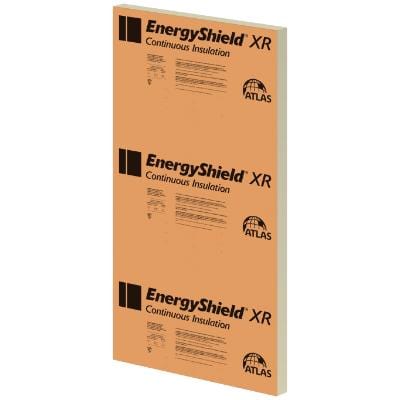-
Atlas EnergyShield XR Foil Faced Both Sides Above & Below Grade 4ft x 8ft Polyiso Insulation Board - All Sizes
Vendor:AtlasfromRegular price $825.83Sale price $825.83 Regular priceUnit price per$0.00 -
RMax Below Grade 4ft x 8ft Insulation Board - All Sizes
Vendor:R-MaxfromRegular price $1,259.08Sale price $1,259.08 Regular priceUnit price per$0.00
Below grade insulation is a critical component in any construction project, providing essential thermal protection and moisture resistance for foundations, basements, and other subterranean structures. At Insulation4US, we offer a diverse range of below grade insulation products tailored to meet various needs and applications. This overview will explore the types of below grade insulation available, their practical uses, and provide guidance on selecting the right product for your specific project.
Types of Below Grade Insulation
Rigid Foam Insulation
Expanded Polystyrene (EPS) and Extruded Polystyrene (XPS) are the most common types of rigid foam insulation used below grade. These materials are known for their high compressive strength, moisture resistance, and excellent insulating properties.
Expanded Polystyrene (EPS): EPS is lightweight, easy to handle, and provides good thermal insulation. It is ideal for use in below grade applications where moisture management is crucial, such as under slabs, foundation walls, and basement walls. EPS can also be treated to enhance its moisture resistance, making it a versatile choice for various below grade installations.
Extruded Polystyrene (XPS): XPS offers superior moisture resistance and higher R-values per inch compared to EPS. It is denser and more durable, making it suitable for applications where greater strength and insulation performance are required. XPS is commonly used in perimeter insulation, under concrete slabs, and in foundation walls.
Spray Foam Insulation
Closed-cell spray foam is another effective below grade insulation option. This type of insulation expands upon application, filling gaps and creating an air-tight and moisture-resistant barrier.
Closed-Cell Spray Foam: This foam provides excellent thermal insulation and structural support. It is ideal for insulating irregularly shaped areas and hard-to-reach spaces below grade, such as around pipes, conduits, and within complex foundation structures. Its high density and closed-cell structure make it highly resistant to water infiltration.
Waterproofing Membranes
While not traditional insulation materials, waterproofing membranes play a crucial role in below grade insulation systems. These membranes are used in conjunction with insulating materials to provide an additional layer of moisture protection.
Bituminous Membranes: These are self-adhesive or torch-applied membranes that provide a robust moisture barrier. They are often used on foundation walls and under slabs in combination with rigid foam insulation to ensure comprehensive moisture protection.
Polyethylene Membranes: Lightweight and easy to install, these membranes are used to prevent moisture migration through foundation walls and floors. They are often paired with EPS or XPS insulation in below grade applications.
Practical Uses of Below Grade Insulation
Below grade insulation is essential for:
Foundation Walls: Insulating foundation walls helps prevent heat loss and moisture infiltration, protecting the structural integrity of the building.
Basement Walls: Proper insulation in basements ensures a comfortable living space by maintaining consistent temperatures and preventing dampness.
Under Slabs: Insulating beneath concrete slabs reduces heat loss and enhances the energy efficiency of the building. It also protects against ground moisture.
Crawl Spaces: Insulating crawl spaces can prevent cold floors and reduce energy costs, while also protecting pipes from freezing.
Selecting the Appropriate Below Grade Insulation
When selecting below grade insulation, consider the following factors:
Moisture Resistance: For areas prone to moisture, XPS or closed-cell spray foam are ideal due to their superior water resistance.
Thermal Performance: Choose insulation with higher R-values for better thermal protection. XPS generally offers higher R-values compared to EPS.
Compressive Strength: In applications with heavy loads, such as under slabs, select materials with higher compressive strength, such as XPS or certain types of EPS.
Ease of Installation: For complex or irregular areas, closed-cell spray foam might be the best choice due to its ability to expand and fill gaps.

 Rated Excellent
Rated Excellent
